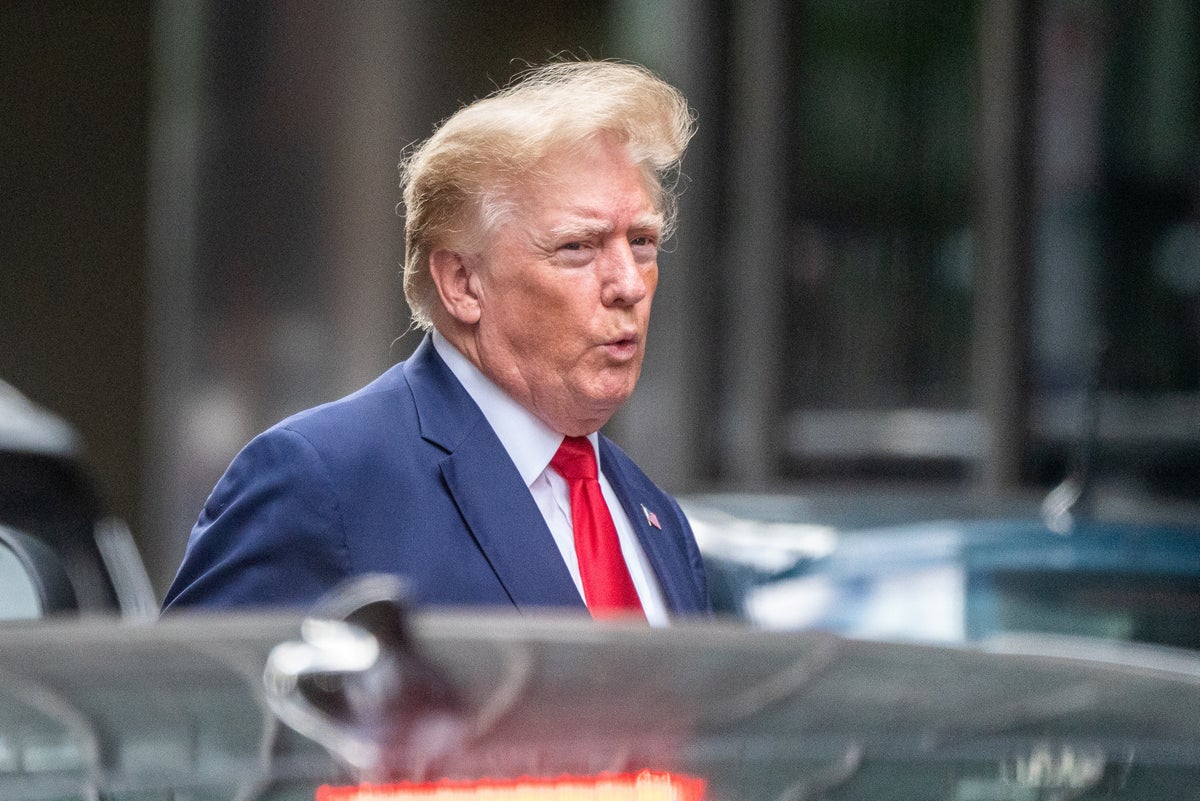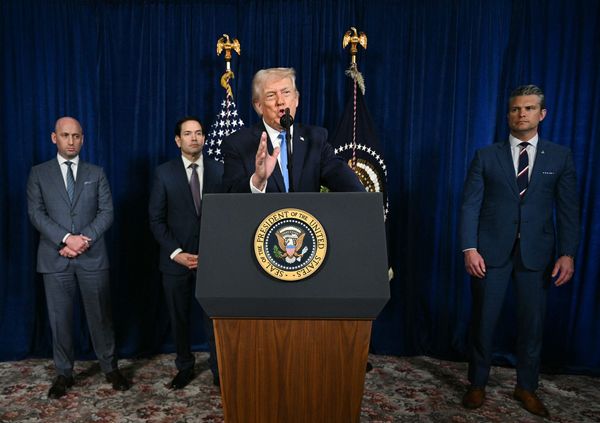
From the moment FBI agents walked out of Mar-a-Lago with boxes under their arms, the contents of the documents contained within have been the subject of fierce speculation.
The nature of those documents could determine the level of legal peril Donald Trump faces in the Department of Justice’s investigation into his handling of classified information.
Federal authorities have given few clues about what they removed from the former president’s residence on Monday morning, but the Wall Street Journal reported on Friday that around 20 boxes were taken from the residence, including “Various classified/TS/SCI documents,” an abbreviation that refers to top-secret/sensitive compartmented information.
The report followed a story in which sources familiar with the investigation told theWashington Post that “classified documents relating to nuclear weapons” were among the items being sought.
Those revelations have increased the likelihood that Mr Trump’s mishandling of confidential documents were more than a bureaucratic mistake, and had risen to a level that represented a significant threat to national security.
Experts on nuclear security have since told The Independent that the descriptions of the documents revealed so far do not tell us much about what they could be.
“It doesn’t really tell us that much about the contents, but those are high levels of classification — they are documents that relate to topics or programmes that whomever classified them thinks would cause quite a lot of damage to the United States if they were released,” said Alex Wellerstein, a historian of science at the Stevens Institute of Technology who studies the history of nuclear weapons.
“They’re of the sort that is totally inappropriate to be kept in a private facility, to be sure,” added Mr Wellerstein, author of ‘Restricted Data: The History of Nuclear Secrecy in the United States.’
He added: “If he was an employee of any classified agency he would be in serious administrative trouble, potentially serious legal trouble. Many people have been fired, and certainly had their clearances revoked, for much less.”
When it comes to trying to decipher what kind of classified information has been discovered in Mr Trump’s basement, Mr Wellerstein said the description of “classified documents relating to nuclear weapons” could include a range of possibilities, from the mundane to the explosive.
“What I would emphasise is there’s a lot more documents and topics related to nuclear weapons that most people realise, so that makes it almost endlessly vague,” he said. “It can be a diplomatic issue, it can be negotiations with Iran, it could be a million types of things that tie into this topic. So it could be a big deal or it might not be a big deal at all.”
To illustrate the range of possibilities that the phrase “classified documents relating to nuclear weapons” could entail, Mr Wellerstein described an example of a classified document relating to toilet roll.
“My favourite example is that, at one point, the amount of toilet paper used by one of the production facilities was classified. Because if you know how much toilet paper they need, you know how many people work there, and you know how many people work there you can estimate the production output, and if you can estimate the production output, you can estimate the stockpile size,” he said.
Conversely, he added, if the documents contain information about the Israeli nuclear programme or Chinese nuclear capabilities, for example, that would have a significant impact on national security.
Cheryl Rofer, a retired nuclear scientist who worked at the Los Alamos National Laboratory, alsp expressed caution toThe Independent when making assumptions about nuclear documents.
“It could be something that is relatively innocuous, like the numbers of nuclear weapons in the stockpile, which is nominally classified but there are open sources that keep track of them,” she said.
In a worst-case scenario, she added, the documents could contain information about Iran’s nuclear programme, which could upend negotiations between international powers currently taking place.
The WSJ’s report on the warrant used to search Mar-a-Lago said that agents retrieved documents “marked as top secret and meant to be only available in special government facilities.”
Such levels of security are often applied to nuclear documents. When Ms Rofer worked at Los Alamos National Laboratory, for example, some documents were subject to several layers of security.
“In practical terms, that meant when I went to my job at the laboratory I had to pass through a gate and show my badge to guards, who would keep an eye out for anybody who didn’t have an appropriate badge. And then once you get into the site, the documents are still locked up, and they are only available to people who have the need to know,” she said.
Mr Wellerstein said the legal ramifications for Mr Trump will depend on the classification of the documents found in his possession. Documents can be classified as National Defence Information, which are top secret, and for which there are specific guidelines for how they are handled. Those regulations are decided primarily by Executive Orders from the president.
“At the higher levels of classification, [those guidelines] might say you have to keep it in a safe of these dimensions and these capabilities. And there has to be someone with a gun guarding the building that has the safe in it. And if you’re going to transmit it to somebody, you have to do it through a very specific protocol and you can only read it in a special kind of room,” he said.
Separate to those regulations about how to handle the information, Mr Wellerstein added, is a law that determines the legal consequences for breaking them: The Espionage Act of 1917.
On Friday, Breitbart News reported that the warrant that federal agents obtained on 5 August to authorise a search of Mar-a-Lago stated that it was being issued pursuant to an investigation under the Espionage Act, a US law that makes it a crime to remove information related to national defence “from its proper place of custody.”
“It’s this kind of complicated, patchwork system of laws and regulations and these executive orders. And in that system, it’s been sort of traditionally held that because of the way that secrecy works, the ability to classify documents derives essentially from the president,” Mr Wellerstein said.
For classified weapons about nuclear weapons, however, there is an entirely separate system of regulations governed by the Atomic Energy Act. It states that the classification of the material is inherent to the information, and much of it cannot be simply declassified by a president.
“That would potentially, in principle, eliminate the defence of saying the President can just make things not secret if he wants to, because it’s not clear he could do that,” Mr Wellerstein said.
But he added: “All of this is dependent on a particular legal interpretation of “restricted data”, and there is not a lot of reason to think that it’s actually constitutional. It's only been tested in the courts once and it ended kind of ambiguously. For that reason, they generally don't try to enforce that provision, because it's just not clear that that can't be squared with other things like the First Amendment.”
There may be a far simpler legal problem for Mr Trump, however.
“If one is hoping that Trump will be charged for something, I wouldn’t pin it on the Atomic Energy Act. A bigger problem, from what I can tell, is the Presidential Records Act, which is pretty clear that presidents are not allowed to destroy or take documents home with them when they are done being president. To me, that’s the more probable sort of legal problem,” he added.







